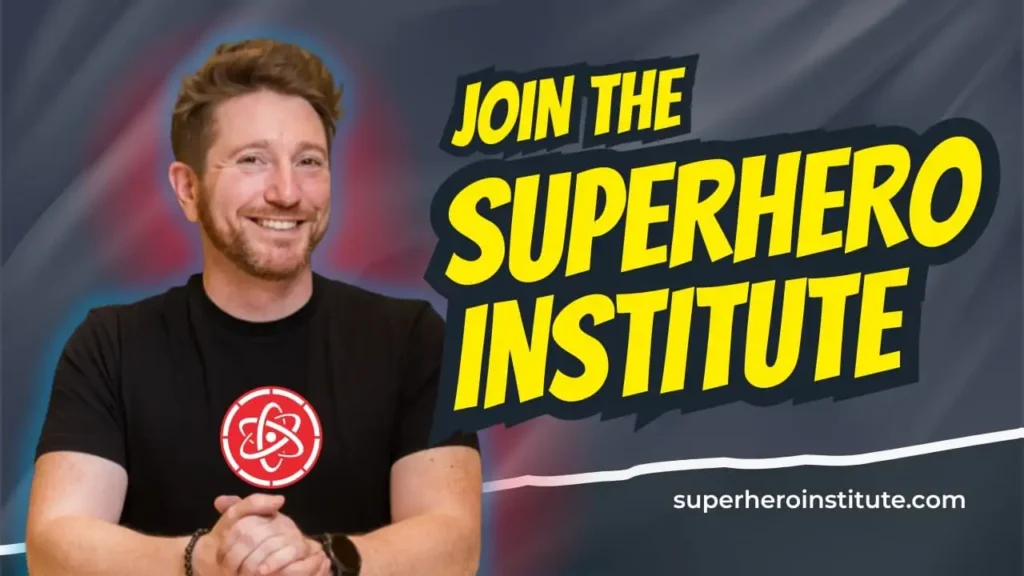Two Simple Changes That Transform Difficult Conversations
I was giving a workshop recently about collaboration, communication, and belonging. Throughout the discussions, a few questions kept coming up:
- How can I give critical feedback to someone without them getting defensive or hurt?
- How can I intervene to correct someone’s behavior, decisions, or work when they’re doing it wrong?
- How do I manage conflict so it doesn’t escalate?
More than a few times I found myself giving the same answer.
Would you be interested in hearing what it is?
✉️ Get the Infinite Impact
Join thousands getting weekly wisdom on unlocking hidden potential, building meta-abilities, and creating meaningful change through practical frameworks you can use immediately.
Two Things To Start Doing Immediately
Here are two simple, yet remarkably powerful things you can immediately start doing to improve all of your relationships and the effectiveness of your communication:
- Replace judgment with validation
- Ask for permission
1. Validate
When someone says something wrong or offensive, our tendency is to correct them. We rush to let them know they are wrong. And what happens next is entirely predictable—they argue back.
In our rush to let them know they are wrong and we are right, we set the stage for a clash of perspectives.
When we validate people, something else happens.
By definition, to validate means to recognize, establish, or illustrate the worthiness or legitimacy of something. In this context, the “worthiness” or “legitimacy” is not necessarily the substance of what a person is saying. Instead, it is the legitimacy of their right to believe that. It is an acknowledgment that they believe it and that we understand how they came to that conclusion.
In short, it is saying: “your experience is valid” and “I get where you are coming from.”
“Thank you for sharing your perspective on what happened. I have a better understanding of how you felt during the situation.”
“It’s interesting to hear that you feel that way, and based on what you’ve told me, I can see how you might come to that conclusion.”
“I hadn’t thought of it that way before. I appreciate you sharing that with me.”
When you do this, it reduces the defensiveness in the discussion that follows because you are not telling the person “you are wrong.”
You are saying “I understand your perspective.”
This allows you to proceed to describe where you might see things differently.
2. Ask for Permission
I used to obsess over the phrase: “well, if you ask me, I…”
It is a self-invitation to say something that someone never asked for.
And yet it happens all the time. Unsolicited advice is everywhere, and it is rarely well received. Because unsolicited advice isn’t about the person getting the advice—it’s about the person giving it.
But one small change shifts everything: ask for permission.
“Hey, are you open to some feedback or reflections on your presentation?”
“What sort of advice or feedback would you find most useful?”
“Is there anything you’d like me to focus on or make sure to cover during this review?”
Each of these questions invites the other person to think about what they are open to. It asks them to check in with themselves about whether they are ready to hear what you have to say.
It also gives you all the information you need to give the most effective feedback.
You can be a bulldozer or effective, but probably not both.
The Choice is Yours
Here’s what I’ve learned: most people want to do good work and have good relationships. They’re not trying to be difficult or wrong. They’re just operating from their own perspective and experience.
When you validate first and ask permission, you’re not being weak or passive. You’re being strategic. You’re creating the conditions where people can actually hear what you have to say and act on it.
The next time you feel the urge to jump in with corrections or advice, pause. Take a breath. Validate their perspective first, then ask if they’re open to hearing yours.
You’ll be amazed at how much more effective your conversations become when you stop trying to bulldoze your way through them.
I hope you enjoyed this post!
If you liked this post, then you will LOVE my newsletter (The Infinite Impact)
and my learning community (The Superhero Institute).


